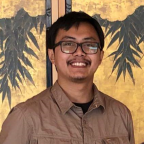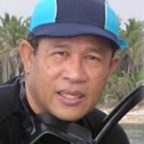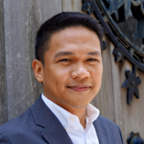The project will conduct capacity development and be aspired from SDGs and APN goals, including transdisciplinary approaches (i.e. involving communities, practitioners, and scientists) to empower local community and sustainably use BCEs. Through capacity development, this project aims to create trans-disciplinary science-based assessment methods for sustainable BCE management. Relevant policy implications and recommendations will be provided in the last phase of the project, collaborating with national and local governmental bodies. BCEs are abundantly located and subjected to various anthropogenic and natural threats in Asian countries. The coral triangle region, which includes Philippines and Indonesia, has one of the largest BCEs in the world. Sustainable BCE managements in the region can contribute to local mitigation and adaptation practices and global mitigation strategies as well as enhancing BCEs’ multi functions including carbon stocks, disaster risk reduction, and local livelihood.
Project Leader
Former project collaborators
Professor Ryo Kohsaka, The University of Tokyo, Japan
“Understanding local perception and socioecological characteristics can serve as a basis to enhance local community awareness and capacity. Applying bottom up ‘citizen science approaches’ for the management of BCEs is necessary to address specific local issues and to promote sustainability and community resiliency as well as apt climate change mitigation and adaptation practices”
Dr. Jay Mar Quevedo, The University of Tokyo, Japan
“I am very fortunate to have been involved in this project from the initial proposal development to project implementation. The main objective is to enhance local stakeholders’ capacity but the project has also greatly improved my capacity as a young researcher. Working with local communities has made me realize that while doing research is challenging, presenting the results to the stakeholders is more challenging. It is necessary to effectively translate climate change science to a user-friendly mitigation and adaptation strategies”
Ms. Campanero Fe, Assistant Municipal Tourism Officer, Balangiga
“The project gave us insights on the importance of blue carbon. It made us appreciate and realize how humans and environment can symbiotically exist. If you understand nature, loving and nurturing it becomes a labour of love”
Project publications

Blue carbon ecosystems in the Coral Triangle: A perceptive approach to climate adaptation

A multi-framework analysis of stakeholders perceptions in developing a localized blue carbon ecosystems strategy in Eastern Samar, Philippines

Project final report: CBA2020-05SY-Kohsaka

Understanding community awareness of seagrass ecosystem services for their blue carbon conservation in marine protected areas: A case study of Karimunjawa National Park

Spatial characterization of cultural ecosystem services in the Ishigaki Island of Japan: A comparison between residents and tourists

Progress of blue carbon research: 12 years of global trends based on content analysis of peer-reviewed and ‘gray literature’ documents

Participatory stakeholder assessment for drivers of mangrove loss to prioritise evidence-based conservation and restoration in Bhitarkanika and Mahanadi Delta, India

Applying the DPSIR framework to qualitatively assess the globally important mangrove ecosystems of Indonesia: A review towards evidence-based policymaking approaches

Potential of seagrass habitat restorations as nature-based solutions: Practical and scientific implications in Indonesia
Understanding rural and urban perceptions of seagrass ecosystem services for their blue carbon conservation strategies in the Philippines











